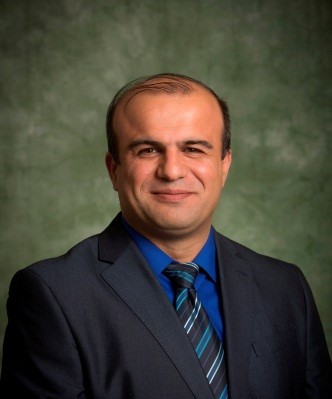Healthcare Systems Engineering and Operations Management: The Journey from Applied Research to Academic Program Development
November Virtual Event with Dr. Mohammad T. Khasawney, Department Chair for the SSIE Department at Binghamton University - Thursday, November 19th, Start Time: 6:30 PM EST
Healthcare Systems Engineering and Operations Management: The Journey from Applied Research to Academic Program Development
Due to the ongoing transformation of the healthcare industry from a fee-for-service (volume-based) to a pay-for-performance (value-based) model, the healthcare sector is constantly evolving every day. Moreover, with the advances in today’s technology, many hospital systems are transitioning into digital modes of operation. Therefore, there is an increased need, more than ever before, to make the healthcare system safe, effective, patient-centered, timely, efficient, and equitable. While systems engineering tools have been widely used in a variety of applications to achieve major improvements, the healthcare sector has been slow in embracing them. The strategic use of these tools, such as lean six-sigma, applied operations research, supply chain management, modeling and simulation, project management, and human factors engineering/ergonomics, can be readily used to measure, characterize, and optimize performance at various levels in a healthcare system. However, building a better delivery system requires effective partnerships that can harness the power of engineering, health and healthcare sciences, information technology, management, and social sciences. Such partnerships are essential to transforming our under-performing healthcare system into high performance environments that produce premier quality care and better patient outcomes at lower cost. The integration of such expertise can establish next-generation policies and approaches in healthcare management, systems engineering, and outcomes research, and ultimately transform our healthcare system to one that embraces patient-centered care, optimized operations, efficacy, safety, and equity. The Watson Institute for Systems Excellence (WISE), an institute for advanced studies at Binghamton University, has been working (in a collaborative mode) with several U.S. and international hospitals to accomplish such objectives. Therefore, the purpose of this workshop is to introduce the broad spectrum of applied research projects in the Healthcare Systems Engineering Center (HSEC), an organized research center under the umbrella of WISE. Those research activities include, but are not limited to: (a) workflow and process re-design, (b) productivity assessment and capacity planning, (c) strategic planning and future-state analysis, (d) lean six-sigma and operational excellence, (e) integrated clinical environment modeling and healthcare data science and analytics, and (f) digital human modeling for ergonomic assessment. After describing the unique working model of his Healthcare Systems Engineering Center and its partner hospitals, several case studies will be presented and discussed. Building on successful partnerships with many health and hospital systems around the country, an academic concentration and a degree program has been developed with options of study on-campus, online, and in Manhattan as part of an executive program.
Event Properties
| Event Date | 11-19-2020 6:30 PM |
| Event End Date | 11-19-2020 8:00 PM |
| Cut off date | 11-19-2020 6:00 PM |
| Individual Price | Virtual Event - No Cost |
| Location | Virtual Event |
Speakers

Dr. Mohammad T. Khasawneh
Professor and Chair of Systems Science and Industrial Engineering at Binghamton University
Dr. Mohammad T. Khasawneh is a Professor and Chair of Systems Science and Industrial Engineering at Binghamton University. Dr. Khasawneh’s research is focused on healthcare systems engineering. He currently serves as Associate Director for the Watson Institute for Systems Excellence (WISE), an institute of advanced studies that generates $2.5-3 million in research funds annually. Dr. Khasawneh’s research and scholarly activities have led to 59 refereed journal articles, 120+ conference articles, one patent, and two new invention disclosures. In addition, his sponsored research efforts have generated over $10 million in external funding and over $39 million in in-kind software/equipment grants. Dr. Khasawneh received the State University of New York (SUNY) Chancellor’s Award for Excellence in Teaching in 2011, the University Award for Outstanding Graduate Director in 2015, and the University Award for Excellence in International Education in 2016. Dr. Khasawneh is also a Society for Health Systems (SHS) Diplomate and a Fellow of the Institute of Industrial and Systems Engineers (IISE).